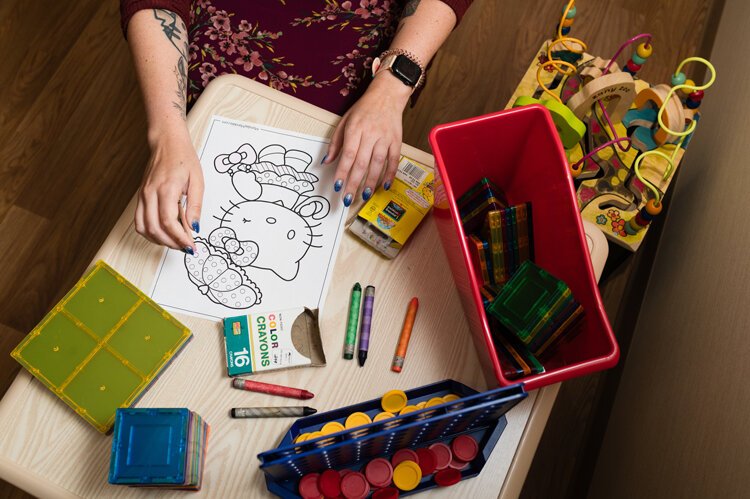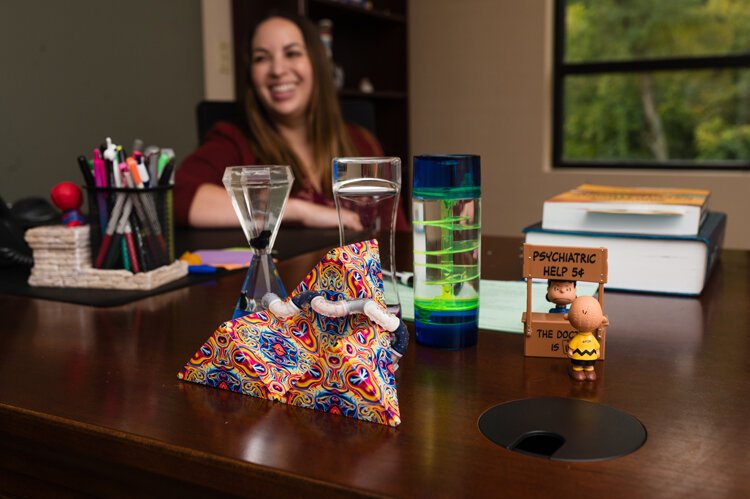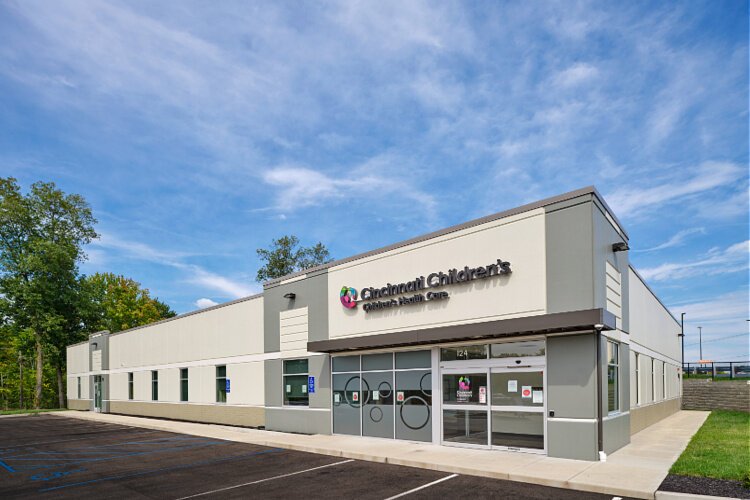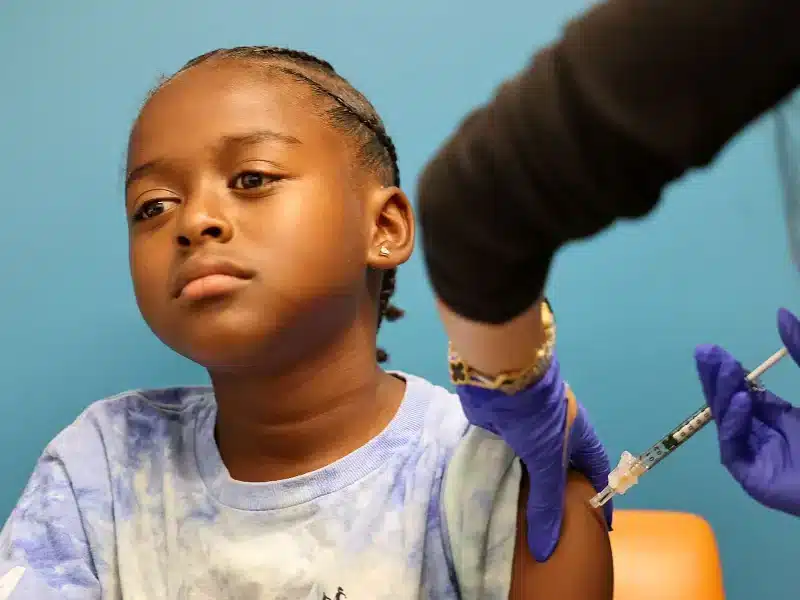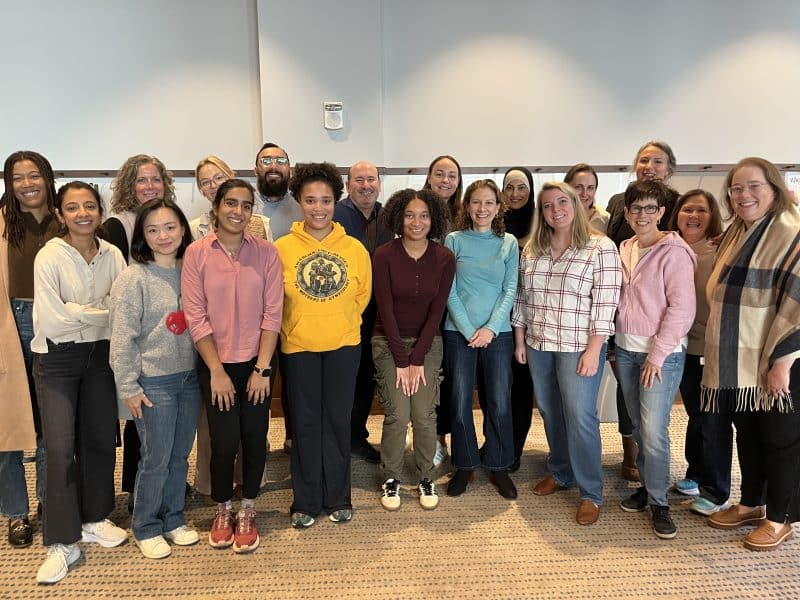To catch teen mental health problems early, two big health systems add experts to doctors’ offices
With counselors embedded in pediatric practices, access to mental health care is faster and more informed.
“Our kids are suffering,” is how one Cincinnati professional summed up the mental health landscape that teens and younger are navigating today. The markers of a healthy emotional life were already trending the wrong way before the pandemic, but the isolation and trauma caused by that event led to a surge in rates of depression, anxiety, and mental health emergencies nationally, including suicide. In 2021, three leading U.S. medical associations declared a national emergency in youth mental health.
It’s an urgent problem, and in Greater Cincinnati, leaders from the medical, social services, education, and philanthropic communities are collaborating to work on the issue. Parents, medical providers, care givers, mental health professionals, and youths themselves will be part of the solution. This story is the seventh in the Soapbox Cincinnati series, Amplifying Youth Voices, which raises awareness of the problem and looks at possible community-based answers to it.
In the midst of a crisis in youth mental health, with rates of depression, anxiety, and suicide surging, and care difficult to find, two of the biggest health care systems in the region are bringing the professionals to the patients.
TriHealth and Cincinnati Children’s Medical Center, the two largest health care employers in Greater Cincinnati, have embedded licensed mental health professionals within their pediatric practices, an effort to catch and address signs of emotional imbalance early, before they grow and worsen.
Since children typically visit a pediatrician at regular intervals for routine checkups, minor illnesses, and to monitor their physical development, adding behavioral health specialists within those practices enables them to be assessed and even treated initially if indicators of anxiety, depression, or other issues are present.
“Because we’re embedded within a system of care that they interface with pretty regularly, it helps patients get access to care, and be able to follow up and not get lost, which we often see with mental health,” says Dr. Gabrielle Paul, a child and adolescent psychiatrist who runs TriHealth’s pediatric behavioral health program.
There’s currently a behavioral health consultant attached to eight of TriHealth’s pediatric practices. They are either licensed social workers or licensed clinical counselors who can provide brief therapies, counseling to parents, and if needed, begin the process of referring them to a longer-term mental health provider.
Under the program, access to mental health care is faster, sometimes the same day, as well as more informed, as doctors can speak face to face with the consultants about their initial assessments and the reasons for their referrals, Dr. Paul says.
“The benefit is not only being able to make that connection right away, but being able to start those services faster,” she says.
The bi3 Fund, a Cincinnati philanthropy linked to TriHealth, has invested $12.3 million to fund TriHealth’s integrated behavioral health program. Much of that was directed toward funding counselors at TriHealth’s more than 30 adult primary care practices. But the fund’s CEO, Jill Miller, says she encouraged TriHealth to include its pediatric primary care offices in the program too.
“Pediatricians were receiving daily calls from parents who could not find help for their children facing anxiety and depression,” she says. “This allows us to identify and address issues early, so children can grow and thrive.”
Cincinnati Children’s has also integrated social workers and counselors throughout its primary care practices. The health system currently has 18 mental health providers within 15 pediatric practices, says Lynne Merk, a psychologist who leads Childrens’ integrated behavioral health team.
They’ve been busy. The consultants at Children’s logged 13,700 patient visits and accepted more than 2,700 new patients in the last fiscal year, she says.
A growing need, but a shortage of professionals
The efforts to improve access to care come as Greater Cincinnati and the rest of the country experience what many call a crisis in youth mental health. U.S. Surgeon General Vivek Murthy in May called it the “defining public health issue of our time,” as growing numbers of young people battle depression, anxiety, loneliness and other issues. His 2021 advisory, “Protecting Youth Mental Health,” found that the percentage of high school students reporting persistent feelings of sadness or hopelessness increased by 40% in the 10 years from 2009 to 2019, while the percentage seriously considering attempting suicide increased by 36% during that time. The emergence in 2020 of the Covid-19 pandemic and the subsequent isolation and fear that stemmed from that public health crisis exacerbated feelings of anxiety and depression even further.
But as the need for care surged, a chronic shortage of mental health professionals has meant long delays to receive care, or the likelihood that children will never be treated at all. More than half of youth suffering from major depression in Ohio, Kentucky, and around the nation do not receive any mental health treatment until a crisis occurs, often resulting in an emergency situation.
“Emergency room visits for mental health reasons have really exploded,” Dr. Paul says.
With mental health professionals working inside pediatricians’ offices, early indicators of mental health problems can be flagged by the doctors, and children and parents can be introduced to the behavioral health specialist, who can begin a deeper assessment or make a referral to a provider at the next level of care. “The beauty of integrated behavioral health is the ease of access to mental health services,” Merk says. “The services are provided in their pediatric health care home.”
Both doctors and counselors have access to the same medical records, so everyone is better informed about symptoms, previous conditions, and other medical history.
“These pediatric practices now have mental health specialists who work in that pediatrician’s office, and are part of the pediatrician’s team,” she says. “They document in the same medical chart that the pediatrician uses, so all of the information is shared within the home pediatric team that is taking care of this child. It’s really comprehensive health care for the whole child and teen.”
The specialists offer coaching to parents on how to recognize and respond to signs of disturbances in their children, and can also provide brief therapies and help parents find resources for more focused or long-term therapy.
‘Revolutionized my practice’
At the Children’s clinic in Batesville, Ind., for example, a licensed mental health counselor, Amanda Zengel, is in the office five days a week. “It has absolutely revolutionized my practice,” says Dr. Gretchen Hartz, a pediatrician who has seen patients at the Batesville office since 2007. “Before she came, especially in our small town, with even fewer resources than you have in the city, it was almost impossible for patients to get therapy in any sort of timely fashion,” Dr. Hartz says.
Kids in need of therapy would need to wait weeks or until their condition escalated to a crisis that required emergency care. Now, patients can be seen and treated much faster. “She can usually get them in pretty quickly, usually within a week or two,” Dr. Hartz says. “And if it’s someone who’s experiencing a crisis situation, she will usually see them right away.”
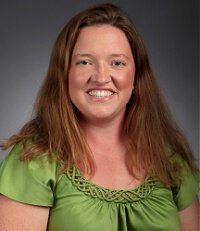
The most common issues encountered in the physicians’ offices are anxiety, depression, and attention deficit hyperactivity disorder. A typical scenario may start with a routine wellness check that includes a screening measurement for anxiety and depression. If the young patient has an elevated score on the measurement, the doctor may recommend a meeting with the counselor or social worker. “It doesn’t necessarily mean this child is depressed, but it prompts the pediatrician to take a deeper look,” Merk says. If it’s elevated beyond a certain amount, the pediatrician is likely to recommend that the family connect with the behavioral health provider, who can conduct a deeper assessment and offer some strategies and information for handling them. That may take place right away or an appointment could be made to return to the office in a week or two. Follow-ups can also be scheduled if needed.
“Sometimes the mental health system is challenging to navigate,” Merk says. “Because it’s new and unfamiliar, it can be a bit scary. So the pediatrician is making it easier. It’s also in the trusted home that these families already know.”
The contacts give families an instant connection and assistance navigating what can be a frustrating to locate available help in a timely way. “It’s often very exhausting for families to try to find these resources,” Dr. Paul says.
TriHealth is planning to introduce behavioral health care managers who can check in with pediatric patients and their families regularly to see how they’re doing with their medications and therapies. “Patients with depression often can get lost or drop out more frequently than other patients,” she says.
Later this year, TriHealth specialists will begin offering “safety planning” to parents whose children are considered at risk of harming themselves or others. That includes methods for de-escalating fraught situations, and providing suggestions for removing or locking away unsafe objects in the home.
Children’s is slowly expanding the program too, and is planning to include behavioral health specialists at new pediatric practices it will open in Loveland and in Union, Ky.
The Amplifying Youth Voices series is made possible with support from Interact for Health. To learn more about Interact for Health’s commitment to mental health and well-being, please visit here.

